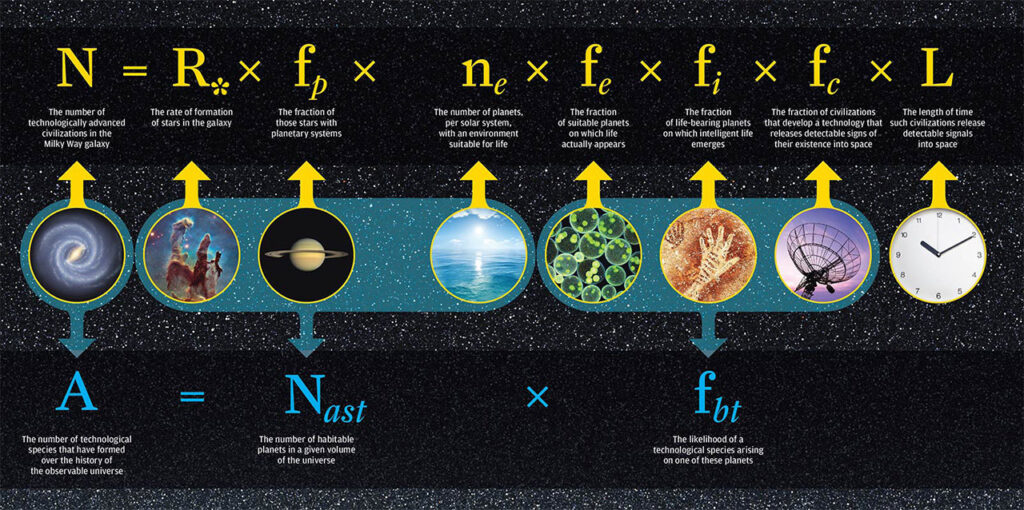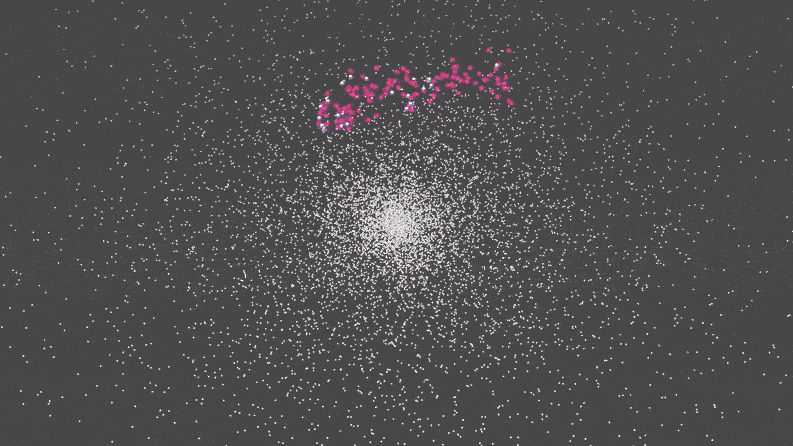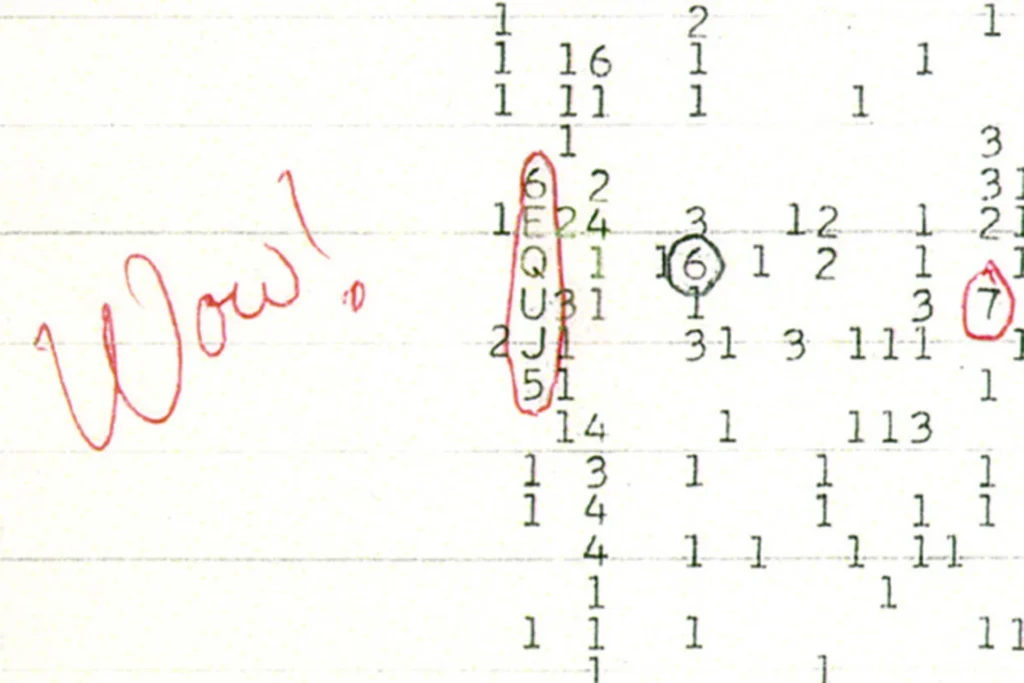PHENOMENON
The Enigma of Fermi's Paradox: Exploring the Cosmic Silence
Written By: Syeda Wajeeha Zehra
Nov 18th, 2023
Is there any other intelligent life in the cosmos besides us? This age-old question has enticed mankind for centuries. Our innate curiosity about the possibility of extraterrestrial life has spurred scientific research and fueled our imagination. However, when considering the vast expanse of the cosmos and the infinite inhabitable worlds it harbors, we are presented with a puzzling conundrum known as Fermi's Paradox. Fermi's Paradox, formulated by physicist Enrico Fermi in the early 1950s, encapsulates this profound mystery, questioning why we have yet to detect any clear evidence of extraterrestrial life, despite the high probability of its existence. In simple terms, if the conditions for life are as common as we believe, and there are so many opportunities for intelligent civilizations to arise, then where are all the aliens? As we delve deeper into the realms of astrophysics and astrobiology, the implications of Fermi's Paradox provoke an ongoing search for answers that may ultimately reshape our understanding of the universe and our place within it.
Background
To appreciate the enormity of Fermi's Paradox, we must first grasp the sheer size of the observable universe. The Milky Way, our home galaxy, contains an estimated 100 to 400 billion stars. Each of these stars is orbited by a multitude of planets, some of which fall within the habitable zone – the region around a star where conditions might be suitable for liquid water and, consequently, life as we know it. The sheer number of potential planets in our galaxy alone suggests that life, and perhaps even intelligent life, should be a common occurrence. Furthermore, the age of the universe, roughly 13.8 billion years, offers plenty of time for the emergence of advanced civilizations.
Drake Equation
The Drake Equation, formulated by astronomer Frank Drake in 1961, estimates the number of detectable extraterrestrial civilizations in our galaxy. This equation takes into account factors such as the rate of star formation, the fraction of stars with planetary systems, the number of habitable planets per star, the fraction of planets where life could develop, the fraction of life that becomes intelligent, and the fraction of intelligent civilizations that can communicate with us. The Drake Equation underscores the tantalizing possibility of a multitude of intelligent civilizations in the Milky Way.

Researchers at the University of Rochester revisit the Drake equation, refining our chances of finding life or advanced civilizations in the universe.
Therefore, if the odds appear to favor the existence of extraterrestrial civilizations, why have we not encountered any evidence of their existence? There are several proposed solutions to Fermi's Paradox, each with its own set of assumptions and implications.
The Great Filter
One potential explanation for the silence of the cosmos is the concept of the "Great Filter." This hypothesis suggests that there is some insurmountable hurdle that prevents life from progressing beyond a certain point of development. The Great Filter could be a rare and catastrophic event, such as a gamma-ray burst, super-volcanic eruptions, or nuclear warfare, which could annihilate civilizations before they become technologically advanced enough to communicate with other civilizations. In this scenario, Earth may be a statistical anomaly that has successfully passed through the Great Filter.
Rare Earth Hypothesis
The concept of the Great Filter, popularized by Robin Hanson, suggests that certain evolutionary hurdles may impede the progression of intelligent life beyond a critical threshold. Earth's conditions and development are unique, and that intelligent life is indeed a rare occurrence. This viewpoint argues that the combination of factors required for life, such as a stable star, a large moon, a protective magnetic field, and other specific planetary conditions, may be extremely unusual in the universe.
The Zoo Hypothesis

The Zoo Hypothesis proposes that extraterrestrial civilizations exist, but they are deliberately avoiding contact with us. This might be because they want to observe our natural evolution without interference, or because they believe we are not yet ready for interstellar contact. In this scenario, we are like a cosmic zoo, being watched from afar.
The Self-Destruction of Civilizations
Another grim possibility is that advanced civilizations have a tendency to self-destruct. Whether through war, environmental degradation, or some other means, it's conceivable that most intelligent societies destroy themselves before they can reach the level of interstellar communication and exploration.
While the idea of exploring the cosmos is captivating, the harsh realities of space travel and the vast distances between stars may render interstellar travel infeasible. It's possible that, despite the theoretical potential of advanced technology, the practical challenges of traveling to other star systems are insurmountable, keeping civilizations confined to their home planets or solar systems.
“Just now, there are a great many matters that are pressing in on us that compete for the money it takes to send people to other worlds. Should we solve those problems first? Or are they a reason for going?”
Explanations
One less pessimistic explanation for Fermi's Paradox is that we simply haven't searched comprehensively or for long enough. The vastness of the universe means that detecting alien civilizations might require a more concerted and extended effort. Our search for extraterrestrial intelligence has only been ongoing for a relatively short time in the grand scheme of cosmic history.
It's also possible that advanced civilizations are communicating or existing in ways we cannot perceive or understand. Our current technology and methods may be primitive compared to what other civilizations have developed, making their signals or activities difficult to dete
Beyond these conjectures, Fermi's Paradox continues to inspire a multitude of innovative ideas and avenues for exploration. The emergence of exoplanet research, advancements in astrobiology, and the continuous refinement of telescopic technologies have accelerated our capacity to scrutinize distant celestial bodies and assess their potential habitability. Ongoing endeavors such as the Search for Extraterrestrial Intelligence (SETI) project actively scan the cosmos for artificial signals or anomalies that may signify the presence of intelligent life. Furthermore, the exploration of Mars, Europa, and other celestial bodies within our solar system aims to uncover clues about the origins of life and assess the potential for habitability beyond Earth. With advancements in technology and our expanding knowledge of the cosmos, it is possible that we may eventually unravel the mystery behind Fermi's Paradox.

The Wow! Signal represented as ‘‘6EQUJ5’’. Credit: Big Ear Radio Observatory/NAAPO
As humanity continues to unravel the complexities of the universe, Fermi's Paradox remains an enduring catalyst for scientific curiosity and exploration. The pursuit of answers to this profound enigma serves as a testament to our relentless quest for knowledge and understanding, transcending the boundaries of terrestrial existence and venturing into the limitless expanse of the cosmos. While the ultimate resolution of Fermi's Paradox remains elusive, its contemplation kindles a sense of wonder and humility, reminding us of the boundless mysteries that await discovery within the grand tapestry of the universe. We may not have yet found definitive evidence of extraterrestrial civilizations, the paradox itself serves as a powerful motivator for further exploration and discovery, pushing us to look ever more deeply into the cosmic unknown. Whether the solution to Fermi's Paradox lies in a Great Filter, the rareness of Earth-like planets, or other yet-unknown factors, our quest to understand our place in the universe continues to inspire and challenge us.
‘‘Two possibilities exist: Either we are alone in the universe or we are not. Both are equally terrifying.’’ - Arthur c. clarke
Subscribe To Our Newsletter
Receive amazing space news and stories that are hot off the press and ready to be read by thousands of people all around the world.
